Iranian University Suspends Students For Mixed Gender Party
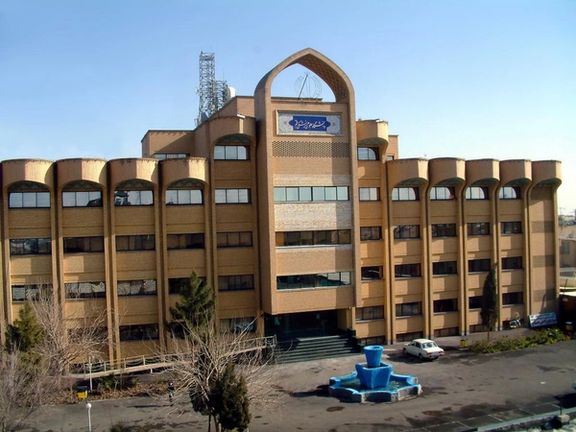
Iran's Qom University of Medical Sciences has imposed disciplinary sentences on a group of students for their involvement in a mixed-gender party.

Iran's Qom University of Medical Sciences has imposed disciplinary sentences on a group of students for their involvement in a mixed-gender party.
Mehran Lachini, the secretary of the university's disciplinary committee, said that the actions were taken in response to “strong protests from fellow students and concerns about the promotion of immorality and lawlessness on social media.”
Amidst heightened security measures at campuses and increased scrutiny of students' belongings, Lachini further stated, "After conducting interviews and allowing the accused to present their defenses, the university's disciplinary committee decided to suspend the individuals from their studies for a duration ranging from one to four semesters." However, the identities and exact number of students involved were not specified in the report.
The move comes against the backdrop of growing pressure on students and reports of summoning and suspensions related to clothing, stemming from last year's nationwide protests following the death in morality police custody of Mahsa Amini.
Iranian universities have been witnessing increased unrest, exacerbated by the death of the 22-year-old Iranian Kurd whose death triggered the worst civil unrest in decades, led by students across Iran.
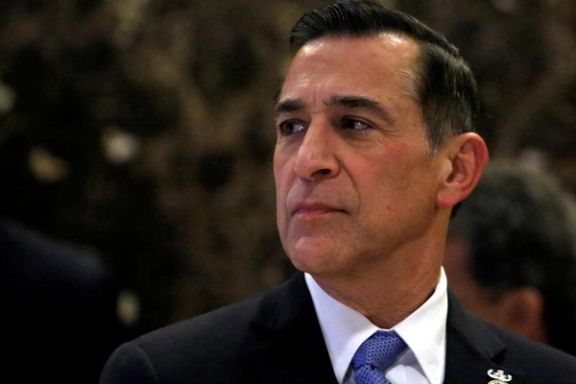
Darrell Issa, a Republican member of the House of Representatives, said that Iran is behind the rising antisemitic incidents in the United States and on the global stage.
Speaking during a House Judiciary Committee hearing held to receive the testimonies of Jewish college students about their experiences of abuse, Issa stated that Tehran funds antisemitic acts in American colleges as it funded the 10,000 rockets that the terrorists used to target Israel.
“We need to fully fund investigations into the funding that goes to antisemitism,” he stressed.
Issa called Iran “virtually the sole funder of attempts to destabilize Israel” and added that Iran is not only antisemitic but wants to destroy the state of Israel.
The hearing was interrupted by pro-Palestinian protesters who called for immediate ceasefire in the region and accused Israel of apartheid and genocide in its treatment of Palestinians.
In reference to the pro-Palestinian protesters who disrupted the meeting, Issa warned that they are inadvertently “playing into the hands of Iran.”
In a post on X after the hearing, the Republican house representative also stressed that the ways Iran provokes hatred towards Jewish Americans must be identified and stopped.
Since Hamas’ deadly onslaught on Israel on October 7, multiple countries in the world have witnessed an alarming rate of antisemitic incidents.
On October 29, a group of angry protesters attacked Makhachkala airport in Russia’s mostly Muslim region of Dagestan in an attempt to find the Jewish passengers of a flight that had recently landed from Israel. The attempt failed upon the intervention of security forces.
Antisemitic attacks have also been reported in many European countries including France and Germany, which have beefed up security measures to protect their Jewish communities.

After more than 40 attacks on US forces by Iran-backed militants, two US F-15 fighter jets struck a weapons storage facility in eastern Syria used by the IRGC.
The operation took place in early hours of Thursday local time. The Pentagon called it a response to attacks on American forces in Iraq and Syria.
US Central Command issued a brief statement on X, saying it will take “all necessary measures” to defend Americans against “those who are responsible for the attacks and will respond at a time and place of our choosing.”
One day earlier, the Pentagon confirmed that militants backed by the regime in Iran had again attacked bases hosting American troops.
Announcing the airstrike Wednesday evening (US time), Defense Secretary Lloyd Austin said "the President has no higher priority than the safety of US personnel, and he directed today's action to make clear that the United States will defend itself, its personnel, and its interests."
However, the nature of the US retaliatory attacks have been limited to one or two targets and has so far failed to deter Iran and its proxies. Critics have been demanding a more robust response. They say Biden's lenient approach towards the Islamic Republic has emboldened not just the regime but its proxies in the region. Armed militant groups backed (and often guided) by the Islamic Republic are targeting US troops almost daily.
“If you want to strangle Iran, you cut off their oil,” said Republican Senator John Kennedy on Monday. “The Biden admin is choosing not to do that, and now they wonder why Iran’s proxies thought they could get away with attacking Israel and, by extension, America.”
Earlier in the week, reports emerged that the Biden administration had warned Iran and Hezbollah via Turkey that the US will intervene immediately if they attack Israel.
"The United States is fully prepared to take further necessary measures to protect our people and our facilities,” said Austin Wednesday evening, reiterating the warning to Iran and its proxies in the region, “We urge against any escalation."
CNN quoted a senior military official that the targeted facility had been utilized in several attacks against US troops in recent weeks.
"We've been watching it for a bit to ensure that when we struck the target, we would be able to eliminate the use of the facility to the IRGC," the official said.
There have been unconfirmed reports in Syrian state media that several members of the IRGC have been killed and injured in the airstrike. Media in Iran was mostly silent about the attack on Thursday morning, but highlighted Hezbollah capabilities in threatening the US Navy in the Mediterranean.
This marks the second occasion in recent weeks that the US has targeted facilities linked to Iranian-backed groups in Iraq and Syria.
The recent strike can be read as a message to the Islamic Republic, holding it accountable for the attacks on US forces by its proxies.
Coinciding with the US airstrike, Houthis in Yemen downed an unmanned American MQ-9 Reaper drone. The Houthis have officially entered the war in support of Hamas.
Iranian officials have been threatening for weeks that the Israel war on Hamas would trigger a wider, regional war involving actors that are mostly backed by the Islamic Republic.
Amid growing fears of a full blown war, AP is reporting that negotiations are underway for a three-day humanitarian ceasefire in Gaza in exchange for the release of “about a dozen hostages held by Hamas.”
One Egyptian official has told AP that the details of the deal were discussed earlier this week in Cairo with the CIA chief and Israeli officials.
A ceasefire would crucial to get aid into Gaza, where 2.3 million Palestinians are trapped in increasingly worrying circumstances.
On Wednesday, the World Health Organization warned of disease spreading in Gaza.
“As deaths and injuries in Gaza continue to rise due to intensified hostilities, intense overcrowding and disrupted health, water, and sanitation systems pose an added danger: the rapid spread of infectious diseases,” WHO said.
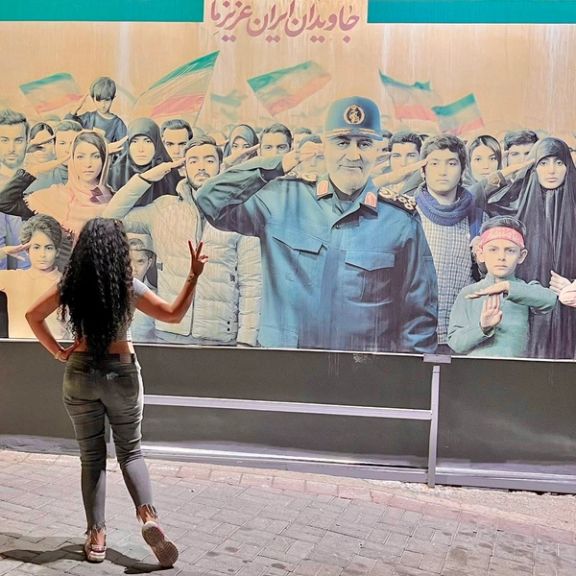
An Iranian lawmaker has alleged that the Woman, Life, Freedom protesters wanted to promote “nudity” in Iran and emphasized that hijab will be strictly enforced.
“There are stringent laws regarding hijab. We will confront those who do not comply with the rules of hijab and deal with them,” Ahmad Rastineh told Rouydad 24 news website Wednesday.
Rastineh, who is a member of the ultra-hardliner Paydari Party, which was behind a recent hijab bill, claimed that observance of hijab has improved in the past couple of months in comparison with the time that followed last year’s nationwide protests. Rastineh is a member of parliament’s cultural committee.
The bill, approved by the parliament last month, faced an unexpected rejection from the Guardian Council, a potent constitutional body responsible for vetting all legislation. The Council returned the bill to the parliament for amendments, citing formal shortcomings in the text, including the ambiguity of terms like “unchastity” or “corruptness.”
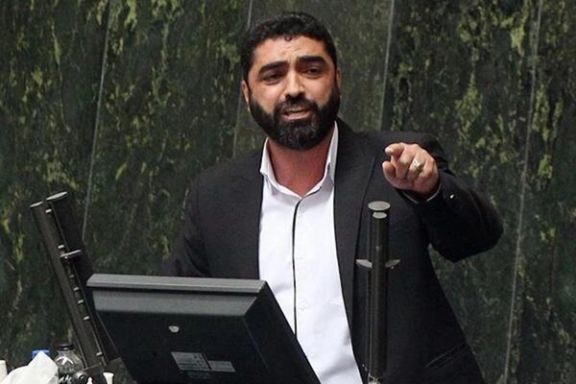
Some analysts viewed the Council’s rejection as an effort to refine the legislation for greater precision, dismissing any correlation with public discontent. Others speculated the Council might be wary of escalating public dissatisfaction before the upcoming parliamentary elections in March, possibly seeking to postpone its final approval.
Rastineh’s remarks over the matter seem to confirm the authorities’ fear of causing further alienation among the population.
"Some misinterpretation hindered the law's implementation. Some believed it would polarize Iranian society and lead to division. They assumed there was substantial demand for freedom in women's dress code, but we observed it was only a minority," asserted Rastineh, accusing authorities of succumbing to the "psychological propaganda" of those opposing mandatory hijab.
The reality on the ground contradicts Rastineh’s claim that abidance by hijab has improved. Images posted on social media suggest more and more women appearing in public across the country without covering their heads despite being often targeted by hijab enforcers and other consequences including loss of their license to work.
Many celebrities who had removed their hijab during the Woman, Life, Freedom protests have refused to wear it again even at the cost of being banned from working.
Not only women who wore the hijab in public to stay away from trouble, but also some women who had always covered their heads and even worn the long black veil by choice, are now saying they no longer believe in it.
Among the latter was a former state television presenter, Fatemeh Kia-Pasha, who used to appear on air wearing the ‘chador’ long veil.
Kia-Pasha who had not been on air for a couple of years, about a year ago began posting photos and videos of herself on Instagram wearing headscarves that covered all her hair.
In a post two weeks ago, the twenty-six-year-old former presenter said she had been wearing the chador by choice but no longer believes in it. The reason she still wears the headcovering in the photos she posts on her Instagram page is out of respect for her mother who believes in the necessity of wearing the hijab, she wrote.
While Kia-Pasha does not appear to have flouted the hijab as a political statement, other women such as Sedigheh Vasmaghi, a prominent Islamic scholar and politician, have stopped wearing the hijab in public as a strong political and religious statement.
Vasmaghi, 63, recently removed her headscarf after decades and even challenged Supreme Leader Ali Khamenei’s hijab edict, by arguing that there is no foundation in the Quran or the Sharia for such an edict.
Khamenei said emphatically in an April 4 speech that “based on Sharia and also politically”, discarding hijab is haram (sinful).

Iran's Parliament (Majles) has directed the Ministry of Culture and Islamic Guidance to monitor citizens' personal lives, as the regime’s ideology loses ground.
The goal is to assess how individuals' lifestyles align with the broader culture of the Islamic Republic, their media consumption patterns, their inclination toward foreign-based media for news and information, and their utilization of communication tools.
Certain lawmakers with access to the complete bill contend that the proposal extends beyond mere lifestyle monitoring, resembling more of a surveillance initiative aimed at individuals and their private lives.
According to reports, 162 of the parliament’s 290 members have voted for the bill, 10 members opposed it and another ten abstained. However, it is not clear where the other 108 members of the parliament stand. That is a large number and could indicate serious but otherwise silent opposition to scrutinising people’s private life.
While the bill was being discussed at the Majles during previous months, Iranian media including Tejarat News, suggested that the government was going to monitor individual Iranians’ presence and activity on social media.
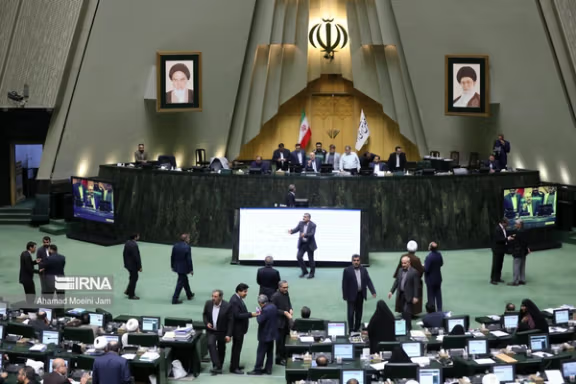
The Iranian regime began restricting access to the Internet as early as 2002, when it began to block independent news websites and many other sites it deemed religiously forbidden.
Since 2009, the Iranian government has progressively imposed restrictions and outright bans on social media platforms. Their concern primarily lies in the potential use of these platforms for organizing and mobilizing groups of people against the regime. The Iranian government has grown more apprehensive due to several rounds of nationwide protests since 2017, recognizing the pivotal role of social media in disseminating and fuelling dissent. Their response to this challenge has largely involved the arrest and, on occasion, even the killing of social media activists.
The government also began a serious clamp-down on Internet access by reducing connectivity and banning all social media outlets, while promoting homegrown platforms, though unsuccessfully. While Supreme Leader Ali Khamenei, President Ebrahim Raisi and most top officials use platforms such as Twitter (X) and Instagram the government bars ordinary Iranian from using them.
The plan to monitor the people’s lifestyle is part of the country’s controversial five year development plan, which has not been endorsed by the Majles yet, but in a strange way, article 75 of the plan has been approved.
The Majles has called for "Ongoing monitoring and assessment of key indicators related to general culture, lifestyles, media influence, and communications" in Iran, to be conducted through online means.
According to Tejarat News, this involves gathering data on people's social media usage, as well as comprehensive details of their lives, including travel patterns, shopping behaviors, and even the specific food items they purchase from online supermarket websites. This data will then be cross-referenced with individual Iranians' information maintained by the Statistical Center of Iran, a government agency associated with the Planning and Budget Organization.
While the Majles was approving the bill, lawmaker Gholamreza Nouri Ghezelcheh pointed out that such a monitoring is against Article 25 of the Iranian Constitution which bars the government from spying on citizens’ private lives. He warned that any study of lifestyle should not include the private lives of citizens and invasion of their privacy.
Majles Speaker Mohammad Bagher Ghalibaf concurred that any investigation into people's private lives would require permission from the prosecutor. He emphasized that this law should not be exploited to encroach upon individuals' privacy. However, he did not specify whether there was a mechanism in place to prevent the government from infringing on its citizens' privacy. Another lawmaker, Moineddin Saeedi, expressed concerns about the public's sensitivity to their privacy and anticipated a negative reaction.
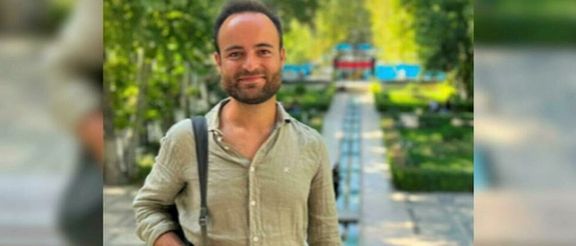
Paris has decried Iran sentencing a French national to five years in prison on a baseless conviction, calling for his release and three other of its nationals held by Tehran.
"We learned with the greatest concern that Mr. Louis Arnaud had been sentenced to five years in prison," Foreign Ministry spokesperson Anne-Claire Legendre said in a statement.
"This conviction, for which there is nothing to support and the absence of any access to a lawyer, is unacceptable."
Ties between France and Iran have been strained over the issue in what Paris has said are arbitrary arrests that are equivalent to state hostage taking.
Arnaud, who has been held since September 2022, is one of four French nationals held in Iran, and is being detained at the Evin prison in Tehran.
His mother, Sylvie, told Reuters the pretext given for his sentencing were for "propaganda and harming the security of the Iranian state."
"These are completely baseless and a carbon copy of what they attribute to other Europeans held in Iran," she said.
In recent years, Iran's elite Revolutionary Guards have arrested dozens of dual nationals and foreigners, mostly on charges related to espionage and security.
Rights groups have accused Iran of trying to extract concessions from other countries through such arrests. Iran, which does not recognize dual nationality, denies taking prisoners to gain diplomatic leverage.
(Report by Reuters)